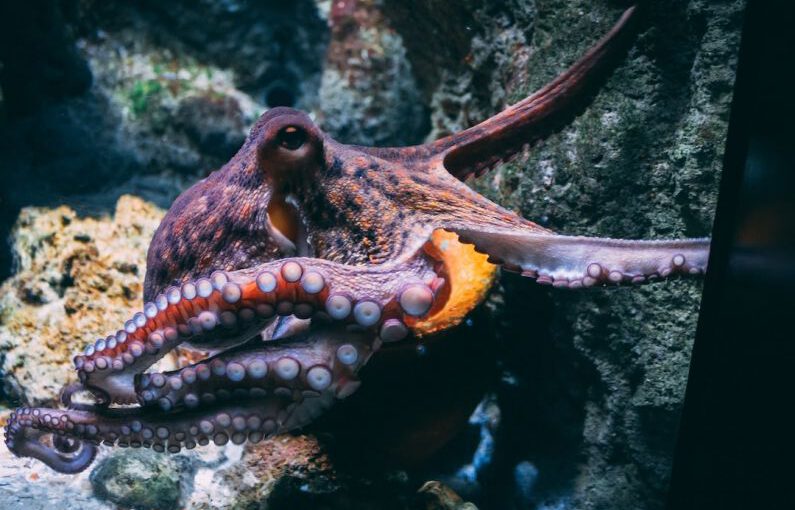The deep sea has always been a realm of mystery and fascination, with its vast expanses holding secrets that continually surprise and intrigue scientists and researchers. One such enigma lies in the architectural wonders created by some of the most intelligent creatures in the ocean—octopuses. While we may be familiar with their ability to change color and shape, recent discoveries have shed light on their potential to build intricate structures resembling cities. Let’s delve into the fascinating world of octopus architecture and explore the question: Can octopuses build cities?
The Master Architects of the Deep Sea
Octopuses are known for their remarkable problem-solving skills and adaptability, traits that have earned them a reputation as some of the most intelligent invertebrates in the ocean. These cephalopods possess complex nervous systems and exhibit behaviors that suggest a high level of cognitive ability, making them adept at navigating their environments and interacting with other species.
In recent years, researchers have observed octopuses constructing elaborate structures using various materials found on the seabed, such as shells, rocks, and debris. These architectural marvels can range from simple dens and burrows to more intricate formations resembling organized communities. While the purpose of these structures is not yet fully understood, scientists believe that they serve as shelters, protection from predators, and even breeding grounds for these solitary creatures.
The Octopus City: A Surprising Discovery
One of the most intriguing examples of octopus architecture was discovered off the coast of Australia, where researchers stumbled upon what appeared to be an octopus “city.” This complex network of dens and pathways spanned an area of approximately 18 meters, with multiple octopuses inhabiting the interconnected chambers.
What makes this finding particularly astonishing is the level of organization and planning involved in the construction of such a city-like structure. Each den was meticulously arranged and decorated with shells and other objects, suggesting a deliberate effort to create a cohesive and functional living space. This discovery challenges our understanding of octopus behavior and raises intriguing questions about the extent of their architectural capabilities.
The Evolution of Octopus Intelligence
The ability of octopuses to build intricate structures raises intriguing questions about the evolution of intelligence in marine organisms. While traditionally viewed as solitary and opportunistic hunters, these cephalopods exhibit social behaviors and cooperative interactions that hint at a more complex social structure than previously thought.
By studying the architectural feats of octopuses, scientists hope to gain insights into the cognitive processes and problem-solving skills that underpin their behavior. Understanding how these creatures navigate and manipulate their environments could provide valuable information about the evolution of intelligence and adaptive strategies in the animal kingdom.
The Future of Octopus Research: Unraveling the Mysteries of the Deep
As researchers continue to uncover the hidden talents of octopuses and other deep-sea creatures, the field of marine biology is poised for exciting discoveries that could reshape our understanding of the ocean ecosystem. By exploring the ingenious architecture of octopuses, we gain a glimpse into the intricate world beneath the waves and the remarkable abilities of its inhabitants.
Conclusion: Decoding the Secrets of Octopus Architecture
In the depths of the ocean, where sunlight struggles to penetrate and darkness reigns, octopuses stand out as master architects capable of creating stunning structures that rival human ingenuity. The discovery of octopus cities and elaborate dens challenges our preconceptions about the intelligence and social behavior of these enigmatic creatures. As researchers delve deeper into the mysteries of the deep sea, the intricate world of octopus architecture promises to unveil new insights into the evolution of intelligence and the hidden wonders of the ocean.





